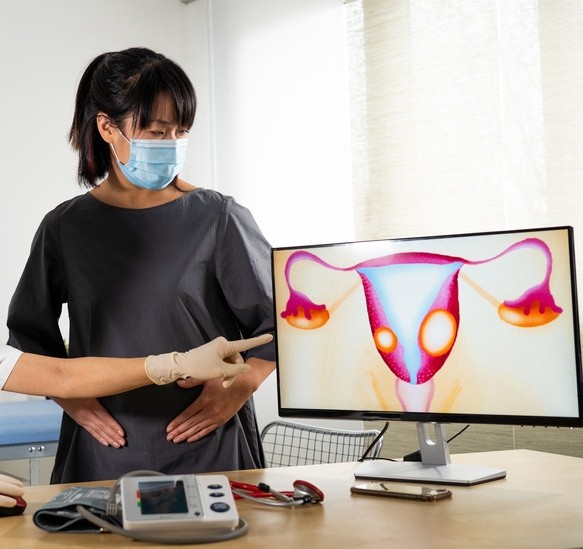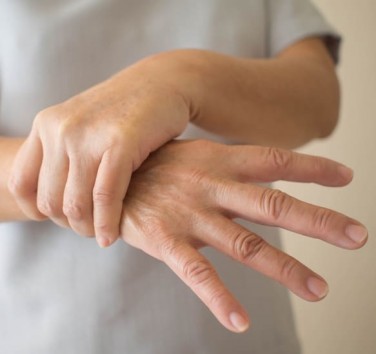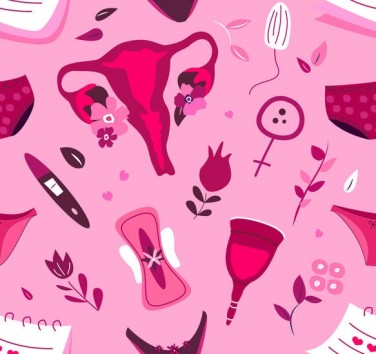CBD is a product from the cannabis plant that has very positive effects on endometriosis and helps to relieve the pain of the symptoms of the disease.
In this article, we will take a detailed look at what endometriosis means to women who suffer from it and what solutions exist, including CBD
What is Cannabidiol (CBD)?
Cannabidiol, or CBD, is an active ingredient found in different varieties of the cannabis plant. It does not produce a psychoactive effect like Tetrahydrocannabinol, or THC, another molecule in cannabis. It relaxes and provides many therapeutic properties that are potentially beneficial for certain symptoms, including chronic pain. CBD does not alter the state of consciousness of its users and does not produce an additive effect.
Cannabidiol is known to relieve symptoms of diseases such as fibromyalgia, multiple sclerosis, Parkinson's disease or epilepsy.
In France, CBD concentrated products are legally marketed in online CBD shops such as 321 CBD
What is endometriosis?
Endometriosis is an inflammatory and chronic disease of the female reproductive system
To be more precise, it is a disease of the endometrium, the tissue that lines the inside of the uterus. During a "normal" menstrual period, the endometrium naturally breaks away from the inside of the uterus and is shed. In the case of a patient suffering from endometriosis, the cells that are supposed to be discharged migrate into the fallopian tubes, the vagina and the ovaries where they continue to follow the menstrual cycle. They sometimes reach different organs, such as the rectum or colon, or even the bladder. They cause painful lesions that can lead to infertility
The exact cause of endometriosis is unknown, but there are several theories as to how and why endometriosis occurs. Retrograde menstruation is a popular theory that involves blood and tissue from a woman's uterus traveling through the fallopian tubes into the abdominal cavity during menstruation, carrying with it endometrial fragments, or cells capable of generating new endometrial foci. It is considered that almost all women have some degree of retrograde menstruation, but only some women will have endometriosis. This may be due to differences in women's immune systems.
Endometriosis is much more common if a close relative also has the disease, so there may also be genes that influence endometriosis.
Why the intense pain during menstruation? When a woman with endometriosis has her period, the blood she discharges is from cells and tissues inside and outside the uterus. When the blood touches these other organs inside the abdomen, it can cause inflammation and irritation, creating pain.
In France, endometriosis is a common gynaecological condition, affecting between 10% and 12% of women of childbearing age, or 1.5 to 2.5 million women.
The symptoms of endometriosis
People with endometriosis usually suffer from at least one of the following symptoms:
-
Severe menstrual cramps
-
Painful sexual intercourse
-
Chronic lower back, abdominal or pelvic pain
-
Diarrhea, constipation or nausea
-
Infertility or difficulty getting pregnant
Some women with endometriosis may have no symptoms at all.
.jpeg)
Existing treatments for endometriosis
Endometriosis is a disease that does not progress very far and there is no risk of the number and volume of lesions getting worse. To date, there is no cure for endometriosis and the disease can be difficult to treat
The treatments that do exist aim to relieve the symptoms so that the condition does not interfere with the patient's daily life. They can relieve pain, slow the growth of endometriosis tissue or improve fertility.
Here are some solutions provided by the medical profession for the treatment of endometriosis.
-
Analgesic treatment The most common treatment offered by doctors today is analgesics. Anti-inflammatory drugs (NSAIDs) and painkillers help women with endometriosis to cope with the painful symptoms of endometriosis, but in no way prevent the disease from developing
-
Hormonal treatment: Hormonal treatment is designed to reduce the level of estrogen in the blood, in order to block the proliferation and bleeding of lesions caused by endometriosis. This treatment relieves the symptoms by reducing or stopping menstruation but does not stop the lesions.
-
Surgical treatment Surgical treatment: Surgical intervention is used to remove cysts and adhesions caused by endometrial fragments in the abdominal cavity. This is done in severe cases of the disease.
Lifestyle changes are considered to improve the condition of women with endometriosis. Indeed, maintaining a healthy lifestyle, eating vegetarian, meditating, doing sports such as yoga or running, adopting an anti-inflammatory diet rich in fatty acids, doing breathing exercises or even doing acupuncture and aromatherapy are some of the informal advice given to patients.
Apart from this advice, there are still no proven "natural" treatments for endometriosis. For a few years now, CBD has been emerging from the pack with its therapeutic properties, notably anti-inflammatory, and offers to relieve the symptoms of endometriosis. Let's take a closer look at the effects of CBD on endometriosis.
The effects of CBD on endometriosis
First of all, let's explain how CBD comes into contact with our body
In our body, we can find cannabinoid receptors, housed mainly in the nervous system, immune system and organs. Cannabinoid receptors have also been found in the endometrium and intestinal linings.
Cannabis is composed of chemicals called cannabinoids, the best known of which are THC and CBD. These interact with these cannabinoid receptors and have therapeutic properties that carry over to diseases that the body suffers from, including endometriosis.
One of the main characteristics of endometriosis is that it is an inflammation. Cannabinoids have anti-inflammatory properties that have been proven in research done for other diseases, such as fibromyalgia for example (read Is CBD effective against fibromyalgia?)
Another symptom of endometriosis is pain, often chronic. Studies show that cannabinoids present in cannabis are beneficial for chronic pain. They relieve and soothe pain due to their analgesic properties. Endometriosis can also cause other comorbidities such as anxiety and depression, for which CBD has been proven to be an effective remedy.
What CBD products for endometriosis?
By reducing inflammation as well as the pain they depend on, people with endometriosis access better living conditions, better management of their bodies and preserve their mental health.
For this, CBD oils, known to have anti-inflammatory and analgesic properties are preferred products by people wishing to relieve their symptoms. CBD oil is administered sublingually, or under the tongue, where it is absorbed quickly and effectively. The quality of CBD oil is very important and influences its therapeutic quality.
If this is your first time, we recommend starting with a low dose, 2-3 times a week, and then gradually increasing the doses. Keeping a diary to see if CBD is having an effect on your symptoms can also be very helpful
Although there have been very few studies on endometriosis and CBD in particular, we know that many chronic pain patients, including endometriosis, use and are very satisfied with CBD and CBD oil. There are also many individual patient case studies that show that CBD oil can help with endometriosis.
To access a range of high quality CBD products, please visit our 321 CBD e-shop and test our premium CBD oils whose properties will relieve your ailments.



















